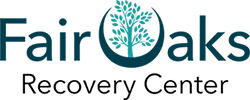 It’s the happiest season of all. Or is it?
It’s the happiest season of all. Or is it?
The holidays, while being a time of gathering and celebration, can also trigger emotions that have long been repressed. When you’re unprepared, these addiction triggers can incite relapse.
What makes the holidays so stressful for a person in recovery?
During the holidays, the pressure to be happy becomes overwhelming. Combined with issues related to money, relationships, and health, general stress becomes amplified. The fact is, for most of us, the core of what led to using substance in the first place lies somewhere within these issues.
If issues with family have not been successfully addressed with a therapist or outside counsel, the likelihood of relapse becomes great when re-exposed to a setting where everyone is together.
During the rest of the year, it’s easier to put blinders on or to self-deceive and believe that the pain has somehow magically been erased. When the shutters snap open and you encounter a stimulus that disrupts your inner well-being, you are more likely to seek past coping methods. In the worst-case scenario, it’s a drink or substance.
Addiction Triggers
The stimuli that provoke your desire to cope are addiction triggers. Addiction triggers can be environmental, social, or emotional. According to an article in Psychology Today, even long dormant behavior can be uprooted by stress and should serve as a warning to people who have suffered with compulsive behavior like addiction.
Environmental Triggers
Environmental triggers can happen when you return to a location associated with using a substance or a setting where a substance is nearby, such as alcohol at a party.
Realistically, family and friends are probably not going to not drink because of you, but rather they will expect you to practice self-control. Rather than putting yourself in a place where you will inevitably be tempted, try to find a sober party or host your own. Don’t risk trying to maintain self-control, especially if you are newly sober.
Emotional Triggers
There’s so much pressure around being happy and having a jolly time, that it doesn’t take much to be tipped off-kilter. It can be something as simple as a movie you used to watch every year with someone or the pressure to have just one drink at a holiday party.
Whatever the reasons, holidays unearth emotional baggage and create a perfect storm for a person in recovery to slip up and seek out a substance to soothe or give them the illusion of happiness.
Some of the common emotional triggers include:
Stress
Stress most commonly arises from expectations. You are expected to be happy, have money, and keep a lot of underlying issues at bay. This kind of suppression increases during the holidays because expectations increase. In addition, there is also the stress that comes with traveling, having people over, or staying at someone else’s house, or perhaps even being alone.
Depression
Surrounded by Christmas music and social media posts of friends appearing to have magical lives, it can seem like everyone is happy but you. You can’t seem to shake the blues and can’t find a direct reason to feel sad. So why do you feel so down? Because that’s the nature of depression, and unfortunately part of the aftershock of getting sober.
Anger
The last thing any of us want during the holidays is to get angry, yet anger is common. Getting together inevitably places a variety of personality types in the same room. Whether it’s a disagreement at the dinner table or someone lashing out in sarcasm, anger will entice you to seek out something to feel better, and can be a severe reminder of why you became addicted in the first place.
Loneliness
Having to spend the holidays alone is undeniably painful and can cause hopelessness and a deep desire to feel better. While you may not be able to spend the holiday with family or friends, at least seek out a group meeting or a place to volunteer.
Guilt
Guilt is a common emotion with people in recovery. The holidays can trigger memories of times when you hurt someone you cared about. Even years later, guilt creeps up out of nowhere. While everyone manifests guilt differently, it can be at the core of other emotions, and ultimately exacerbate them. Don’t get stuck in the guilt loop of self-hatred. Remember, you are working on yourself to heal and get better. You are not that same person anymore.
The truth is, emotions cannot be avoided, but with planning and diligence, they can be managed. Creating a comprehensive and realistic plan for when emotions arrive is the best way to prevent relapse from occurring.
Some tips to keep in mind:
- Look out for yourself. If an argument ensues or someone starts bringing up hurtful questions, leave the situation. A reaction will only further fan the flames.
- Avoid people or situations that you know will cause heightened stress. If the interaction is unavoidable, think of ways to decrease emotional tension.
- Don’t forget to practice self-care. Taking time for yourself to meditate, do yoga, or go for a walk can make a huge improvement.
- Establish a support group. Know who to call if things get upturned. This could be a sponsor or a sober friend or family member who will not be in the immediate environment.
Most importantly, don’t run toward the pain by poisoning yourself. Show love by caring for yourself and not seeking temporary methods that will only lead to more pain.



